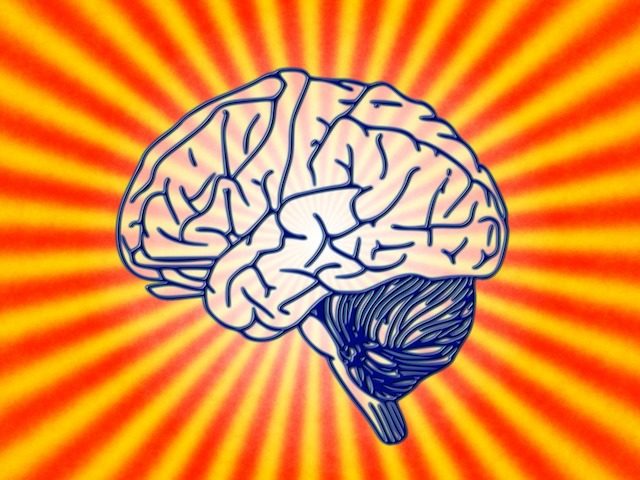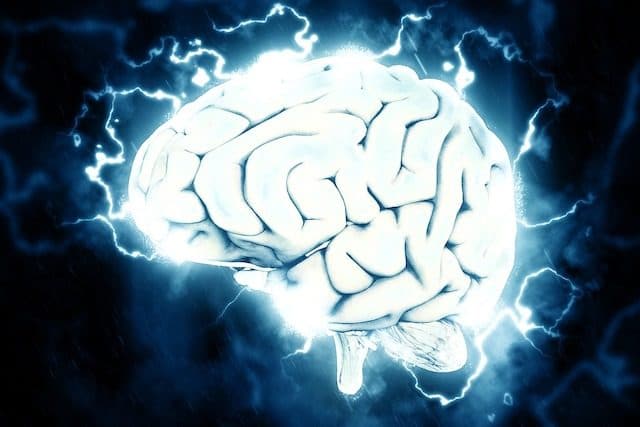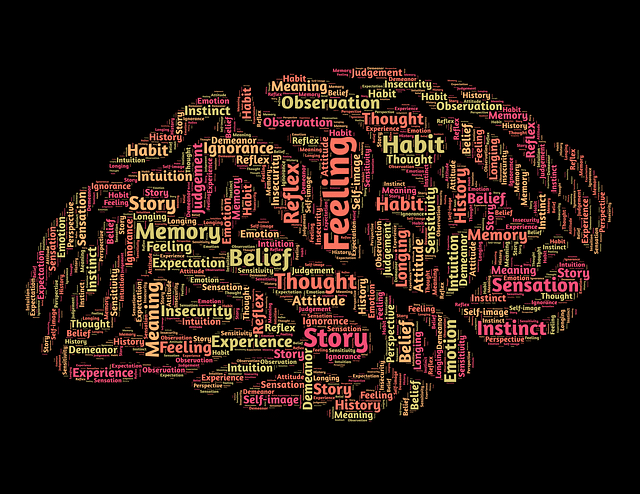Daniel McCartney was born in 1817. Nearly blind, he’d had several operations on his eyes and was capable of reading large print on paper if he held it about two feet away from himself. Despite this, at the age of 52, he was interviewed and proved to his interviewer that he was able to remember, in extreme detail, every single day of his life from the time he was 9 and a half years old until the day of his interview.
McCartney could be given any random date, and he could quickly say what day of the week it was and what the weather was like that day. This information was confirmed through old newspapers. At one point, he even corrected something the paper got wrong from years earlier.
All the information was filtered through his own experience, so he knew what he ate every single day, he knew what he did every single day, whether it was bringing dinner to his father while he gathered coal, his uncle selling a horse, or the capture of Fort Sumter.
McCartney was one of those rare people who are either blessed or cursed with hyperthymesia. These people remember almost everything, no matter how insignificant, from their lives. They can remember what mail showed up on a specific Tuesday twenty years ago. Which means they can never forget anything, even if it’s awful.
What is Hyperthymesia?

Hyperthymesia, sometimes called highly superior autobiographical memory, or HSAM, is a kind of nearly flawless memory that some of us might call photographic memory, though that is something different.
Officially, this has only existed since 2006, as there wasn’t a name for it before that, although, as we saw in the case of Mr. McCartney, it has existed for quite a long time. It rose to prominence thanks to actress Marilu Henner, who was one of only 12 people in the entire world believed to have this condition a few years ago, and now it’s up to about 50 to 100.
The memories that these people can recall are not the same as what you think of when someone says photographic memory. They can’t recall all general information that they encounter; it’s personal information, things that relate to them specifically, that they remember, hence the “autobiographical” part of the name. If you ask them the day that the Avengers was released or when the Fukushima disaster was, they will be no more likely to remember that than you.
Subjects with hyperthymesia are not necessarily geniuses able to do and recall everything with ease. Like McCartney, a subject known as HK also suffered from blindness and hyperthymesia. His intelligence was considered average in any given subject; it was only his memory that was greatly enhanced. He could remember, in great detail, nearly all of his life since childhood, even with no visual reference due to his blindness.
To determine the nature of this remarkable ability, his brain was scanned, and it was noted that his amygdala was 20% larger than average. There were also greater connections between his amygdala and hippocampus. Functional MRI scans show unique activity in the brains of those with hyperthymesia, not present in typical brains during memory recall.
The amygdala is believed to be a control center for processing emotions, and it is also linked to memories and learning. The hippocampus is also chiefly concerned with learning and memory.
Most of us form memories differently from someone with hyperthymesia. Our daily experience is stored as short-term memory, and then, typically, something significant has to happen for those memories to be committed to long-term memory. These memories are formed and stored in different parts of the brain.
Short-term memory begins in the prefrontal cortex. If it’s something worthy of remembering, then there are several ways it could be formed and stored in the amygdala, the cerebellum, the neocortex, the basal ganglia, and more. A lot of your brain can aid with memory once it’s committed to long-term. But it has to get there first.
Have you ever stood in your kitchen and not been able to remember what you had for breakfast the day before? That’s why. Nothing significant enough happened at breakfast to make it a permanent memory. If you think for a minute, it may come back to you, but it also may not. And breakfast a week ago? That’s almost certainly been forgotten.
Hyperthymesia stores memory differently. Short term starts the same, but then all of it seems to be filed like a database system where everything is organized and everything is stored, no matter how insignificant. If it happens, it’s recorded. At least, for the most part. Some people, like Joey DeGrandis, don’t retain mundane details well, like where he put his keys. He has shown bad short-term memory, but give him a few days, weeks, and months, and he can recall things in great detail.
Interestingly, unlike with typical memory, those with hyperthymesia actually display greater recall and accuracy after more time has passed, when, typically, the memories would be lost or muddied. It has been theorized that this is because people with hyperthymesia obsess over their thoughts and, because they are completely accurate, they can focus on details again and again and strengthen their recall.
What Causes It?

The nature of what leads to HSAM is still not fully understood. There has been speculation that the tendency of these people to continually reflect on their own memories and past may actually be a contributing factor, however.
Like a sort of memory OCD, the fact that they can’t stop repeating the memories strengthens their memory. This is bolstered by the fact that people with hyperthymesia tend not to have a good recall of recent events, but can recall events further and further in the past with greater detail. It’s something that has to be built up in their minds. But again, this is mere speculation and hasn’t been conclusively proven.
The causes could be psychological, but it could also be biological or genetic. There is simply not enough research to conclude.
Is it a Curse?

No doubt you could think of many reasons why this ability would be awesome off the top of your head. Remembering everything that you’ve ever experienced with perfect detail? Just think of all the amazing moments you could go back to in your own mind and relive. There are probably a whole bunch, right?
Consider the worst day of your life, however. Everyone has a worse day, regardless of how bad it was compared to everyone else’s. Someone with HASM will remember the worst day of their life in absolute perfect detail. And, as we said, these people tend to obsess over their own thoughts. So you can’t push it aside. You can’t make yourself forget. In fact, the opposite is going to happen. You will always perfectly remember the worst day of your life. It will become more Vivid and more real in your mind day after day.
Depending on what horrible thing happened to you on that day, this could be a living nightmare that you will never escape from. People dealing with the condition have pointed out that a painful breakup or the death of a loved one or pet is always as raw as the moment it happened. It’s not just the memory of the event, it’s the feelings, too. You don’t ever forget how it feels.
Jill Price was the first person ever officially diagnosed with HSAM. She described her memories as “non-stop, uncontrollable and totally exhausting.” She lives every day thinking of every single choice she didn’t make, all the things she knows she could have done but didn’t, and what could have happened if she had made those other choices. It’s like her memory is a factory churning out regrets.
Others have said it’s like a movie walk-through of their own life, from the moment they wake up to the moment they go to sleep, just a never-ending replay of events. They become, in many ways, prisoners to their own memories.
Rebecca Sharrock gave an interview and explained how her memory had led to depression and increased anxiety. Those with hyperthymesia tend to relate the present day to the past. So if today is October 1st, they might wake up and remember October 1st from 17 years ago.
For Sharrock, this means if she remembers something from when she was a child she remembers it as she did when she was a child. Meaning if something bad happened to her back then, a child’s emotional response is what she experiences. Something that adults would be able to handle could be traumatic when it comes back to her because she experienced it with a child’s mind and her perfect memory only recalls a child’s emotions.
The Benefits of Remembering

Hyperthymesia is not all doom and gloom for the people who experience it. Yes, it can be stressful, but there are upsides. Author Frank Healy, who has over 58 years’ worth of memories stored in his mind, explained on a podcast that it was difficult to navigate in his youth, but as he has learned to cope, things do have upsides.
If Healy meets a new person, the next time he encounters them, he will absolutely flatter them by remembering their name, what they do, their spouse, their kids, and their hobbies. They’ll be convinced that they are supremely interesting thanks to Healy’s condition. Maybe that’s a small or insignificant thing, but imagine what that would mean if you were in sales or any kind of business. Or a conman.
For many, like Frank, if they focus on remembering the mundane, it comes easily to them. That makes school a breeze. You never need to forget a birthday or anniversary again as long as you can relate it to yourself and your own life.
There are a number of careers that are greatly improved by having an amazing memory in fields of science, history, and law. Bob Petrella has learned to live with hyperthymesia, and while he has had to learn to deal with the stress of reliving his worst memories, he has found silver linings as well. Because he remembers exactly how he felt after any mistake he ever made, he is more acutely aware of why he needed to avoid those mistakes. He is, very much, exemplifying why learning from your past is important.
Differences with Eidetic Memory and Photographic Memory

We said earlier that hyperthymesia and photographic memory are not the same thing. People with a photographic or eidetic memory can experience something for a brief time and then recall it with almost perfect precision. This is a short-term ability, however. Someone with an eidetic memory will not remember these details in 10 years, for instance. Or even in a week. In most cases, it only lasts for minutes. It’s also almost exclusively seen in children, though some adults display the ability
Photographic memory would be something like long-term eidetic memory of hyperthymesia, but generalized. So instead of eidetic short-term, it would be a lifelong, or at least extended across many years, type of memory. And unlike hyperthymesia, it would not just be autobiographical information, but all information that a person had encountered.
While pop culture has provided us with examples of characters with photographic memories, there is actually no conclusive evidence that this ability is real. There are people with amazing memories, of course, but not something that meets the criteria of what we think of when we hear “photographic.”